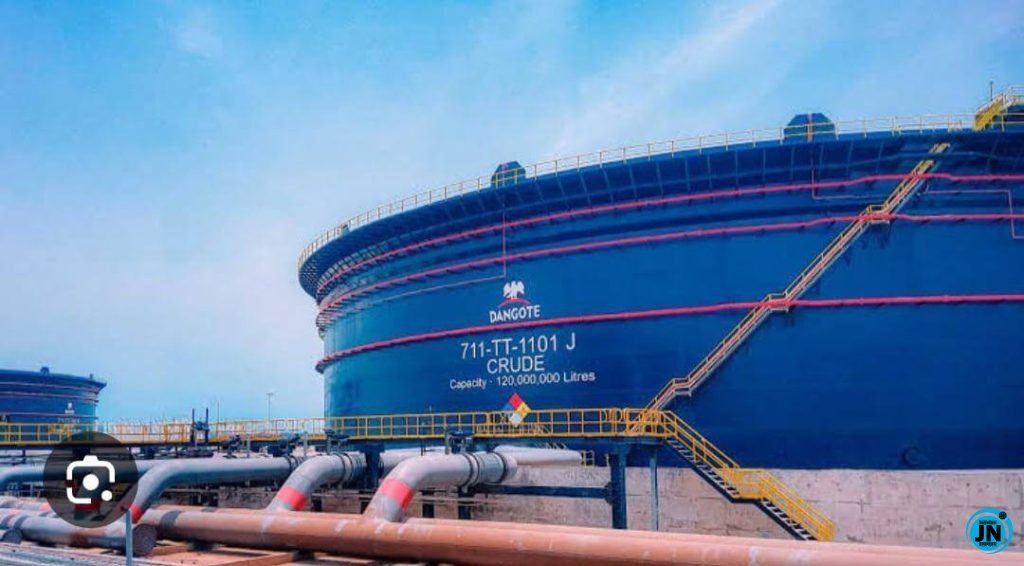The Organisation of the Petroleum Exporting Countries (OPEC) has highlighted the significant impact that the Dangote Petroleum Refinery has had on the Premium Motor Spirit (PMS) market in Europe, marking a notable shift in the global petroleum sector. The Dangote Refinery, with a massive refining capacity of 650,000 barrels per day, commenced operations in January of the previous year and began producing petrol in September 2024. This was a crucial milestone for Nigeria, a country that had long depended on importing fuel to meet domestic consumption demands.
The refinery has since ramped up its production of not just petrol, but also diesel and aviation fuel, which are now being exported to several countries across Africa and beyond. This strategic shift has had wide-reaching implications, especially in Europe. Prior to the operation of Dangote's refinery, Nigeria was heavily reliant on importing petroleum products from European markets. However, the advent of Dangote's production capabilities has disrupted this longstanding dependency, reducing Nigeria's reliance on these imports and shifting some of the market dynamics in the region.

According to a recent report by OPEC, the Dangote refinery’s operational ramp-up has intensified Nigeria’s exportation of gasoline, thereby potentially increasing pressure on the European gasoline market. The report specifically mentioned that, "The operational ramp-up at Nigeria’s Dangote refinery and its gasoline exports to international markets are likely to put further pressure on the European gasoline market." This is because the continued gasoline production in Nigeria, a nation that was once wholly dependent on imports, is freeing up gasoline volumes that will now be redirected to international markets, creating a surplus that could lead to shifts in the flow and destination of these surplus volumes.
Furthermore, OPEC noted that during the last quarter of 2024, Nigeria’s imports of petroleum products declined significantly, which had a positive impact on its external sector outlook. Despite this, the European gasoline market experienced a slight increase in gasoline crack spread in Rotterdam against Brent crude, driven by healthy export volumes. However, OPEC cautioned that this could be tempered by the fact that gasoline inventories in the Amsterdam-Rotterdam-Antwerp (ARA) storage hub remained high, with expectations of further growth in the coming months. This increase in inventory levels was attributed to lower seasonal demand and a potential oversupply within the Atlantic Basin. Consequently, OPEC warned that an ongoing increase in gasoline refinery output could exacerbate the bearish sentiment in the gasoline market.
Additionally, OPEC’s Monthly Oil Market Report for December 2024 revealed that Nigeria's daily crude oil production averaged 1.507 million barrels per day (bpd), an increase from the previous month's production of 1.477 million bpd. However, government-supplied figures slightly adjusted this figure, stating that Nigeria's output for December was 1.485 million bpd, which aligns with the data from the Nigerian Upstream Petroleum Regulatory Commission.
The Dangote Refinery, which is valued at $20 billion, has been recognized as one of the largest refineries globally. In fact, its refining capacity surpasses that of the ten largest refineries in Europe, according to data from Bloomberg. Specifically, with its 650,000-bpd refining capacity, the Dangote Refinery is more than double the size of Shell's Pernis refinery in the Netherlands, which has an installed capacity of 404,000 bpd. Other major European refineries, such as BP’s Rotterdam refinery in the Netherlands (380,000 bpd), the GOI Energy ISAB refinery in Italy (360,000 bpd), and TotalEnergies’ Antwerp refinery in Belgium (338,000 bpd), also have lower capacities compared to Dangote’s refinery. The refinery's scale has placed it among the top-tier refineries globally, and its presence continues to disrupt the established market dynamics.
Other European refineries, such as the Orlen Plock refinery in Poland (327,000 bpd), Shell’s Rheinland refinery in Germany (327,000 bpd), the Miro refinery in Germany (310,000 bpd), and ExxonMobil’s Antwerp refinery in Belgium (307,000 bpd), are also significant but do not match the capacity of Dangote’s refinery. The increase in production from Dangote's refinery is likely to continue influencing global petroleum markets, with particular implications for the European gasoline market, where competition for market share is growing.

